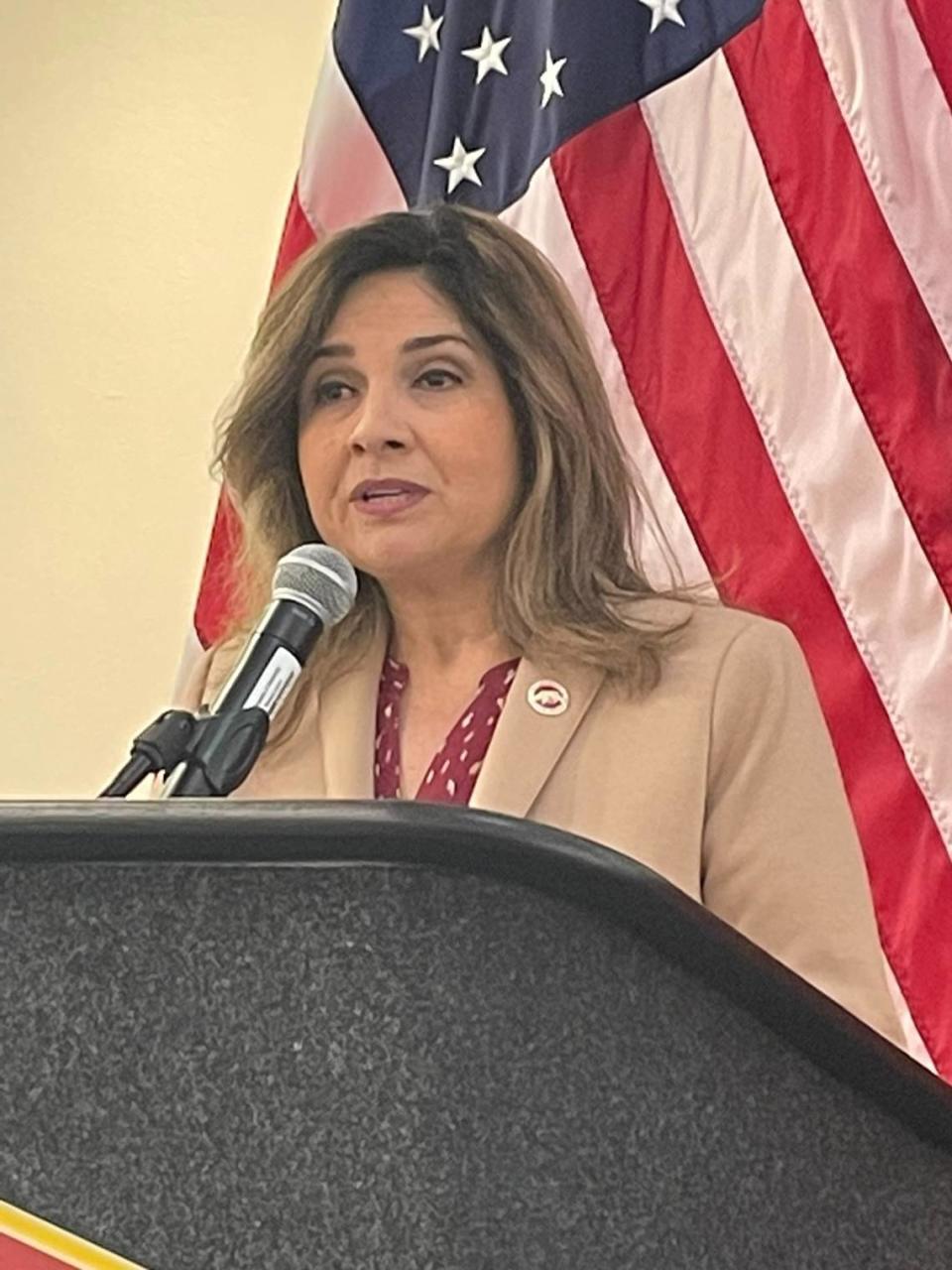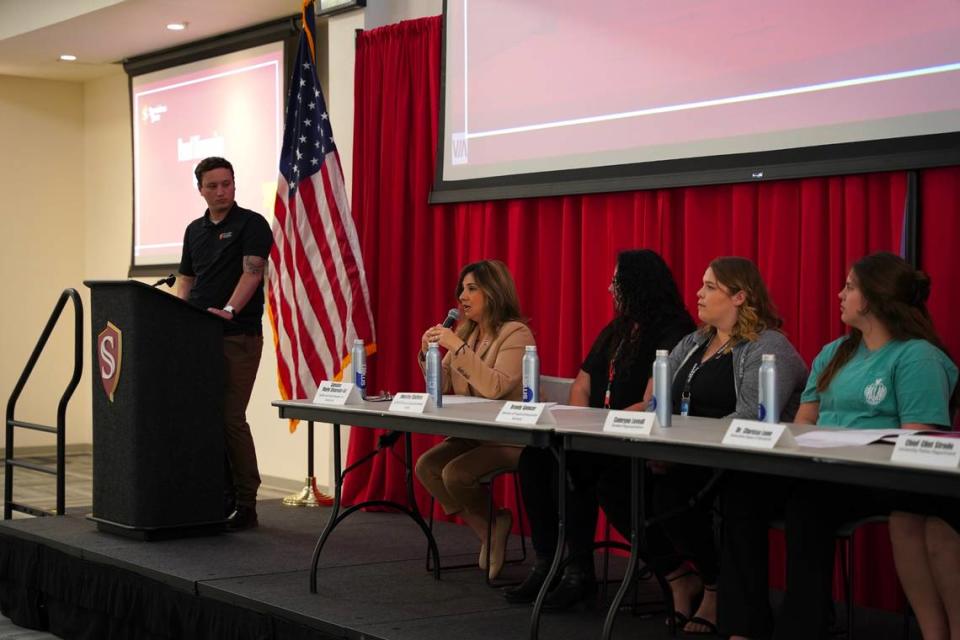Is raping an unconscious person a violent felony? Of course it is | Opinion
Raping someone who is intoxicated or unconscious is not classified as a violent felony in the California Penal Code, a serious flaw in Proposition 57, which was approved by state voters in 2016 and allows for earlier parole considerations for some “nonviolent offenders.”
The problem with the proposition, and what may not have been clear to state voters, was that some crimes that reasonable people would assume to be violent are not classified as violent — including crimes against people who were intoxicated or unconscious at the time they were raped.
It defies common sense that it is not a violent crime to rape someone unable to give consent because they are unconscious. These crimes need to be classified as violent rapes because they could lead to longer prison sentences for the rapists.
Democratic State Sen. Marie Alvarado-Gil, herself a survivor of repeated childhood sexual abuse, wants to erase the legal difference and make all rapes violent crimes. She has introduced Senate Bill 268 to that effect. It deserves the support of all.
The legislation would also treat equally anyone who rapes someone who has a disability or is otherwise unable to provide consent.

“No matter what you did, what you wore, who you trusted or the words you used, it’s not (the victim’s) fault,” said Alvarado-Gil, who represents Stanislaus, Merced and 11 other counties. “This is a crime where far too often we look at, `What could I have done differently? Why did I drink that much? Why did I trust them when they told me that they loved me?’ I’m here to remind you, sexual assault is not your fault.”
A national study in 2007 found that of 112 million women in the United States, 18% (20 million) had been raped, including nearly 3 million who were victims of drug-facilitated rape and 3 million who were incapacitated, according to the US Department of Justice.
The bill rightly has earned the support of local leaders such as State Assemblymen Juan Alanis and Heath Flora, both coauthors, and Stanislaus County Sheriff Jeff Dirkse, all Republicans.
Unfortunately, the bill has about as much chance of success in Sacramento as an assault weapons ban does in Washington, D.C. The obstacle is politics.
Scheduled for a Tuesday hearing in the Senate Public Safety Committee, it would surprise no one if committee leadership does not choose to give SB 268 an airing. It then would proverbially die in committee.
Reflecting the Democratic supermajority in the California Capitol, most members of the Public Safety Committee have a knee-jerk opposition to anything adding time to prison sentences, even if the proposal comes from someone in their own party. Because people of color are disproportionately convicted, rejecting additional prison time sometimes makes sense.
But crime victims also are more likely to be people of color. And women of color are more likely to be sexually assaulted in incidents involving substance use, studies show.
This means little to a legislature committed to criminal justice reform, one which has repeatedly rejected bills calling for enhanced sentences for monstrous crimes involving human trafficking and deadly fentanyl.
`The hill I die on’
Alvarado-Gil, elected in November, is undaunted.
Two decades ago, she was studying veterinary medicine at UC Davis when a part-time job advocating for crime victims, coupled with memories of her own experiences enduring sexual assault — in her immediate family, and in foster care — prompted a change of direction to help young people in education.

No lobbyist or victims’ group approached Alvarado-Gil with a request to carry special-interest legislation. She originated SB 268 on her own, and will bring it forward as long as it takes, she said Friday after speaking on a sexual assault awareness panel at California State University, Stanislaus in Turlock.
“This will be the hill I die on,” she said.
She ought to be spared the indignity. In the name of equal justice, the Legislature should embrace SB 268.

